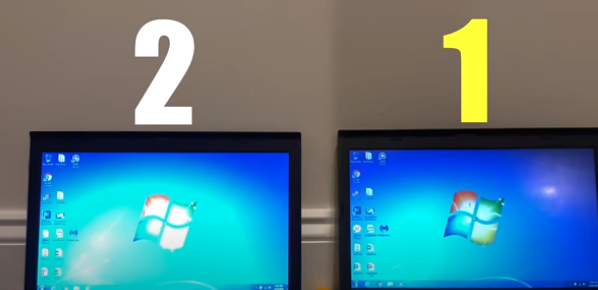Knowing how to balance and make decisions is an obligatory lesson for managers throughout a lifetime.
Always lead by example
The first management challenge in life: employees are not as capable as you. This is an issue regularly encountered. When you pass over an item to staff, you always feel that it is not handled correctly, how can you make it like this? Let it go, I’ll come. Once you speak these four words, you still haven’t leaped out of the inertial thinking of individual contributors, and you can’t jump to a qualified management. When I started to manage people from employee to manager for the first time, my supervisor gave me a tremendous shock since he did it.
Once we participated in a highly important occasion. After the event, we had to prepare a report and send it to the United States. The first time I came into contact with such a significant event report, I was really apprehensive. After drafting this report in English meticulously, I sent it to the boss in a long email, and then my boss only did one thing. My report is repeatedly marked and rejected. I think something is wrong in this location, and what is wrong in that area. These bosses change directly, right? But he merely put up his thoughts, and he didn’t do anything. I had no option but to make modifications, continually modifying over and over again.
After modifying this wave, I particularly added V2 to the subject of the email, indicating that this is the second version, Version 2.
Then I emailed it back, and I stated that I am completed, so you may look at it again.
After he finished reading, he shook his head and continued to tap on the keyboard a few times. After the adjustment, he swiftly emailed it back to me. After that, he gave me a lot of remarks and comments, but he didn’t modify anything. I was really Angry.
Then I continued to change under his label, and then he changed again, just like that, you come and leave, change, change, change, and I can’t recall approximately how many changes have been made. We started from get off work hours. It was modified till 7 o’clock the next morning, and when he finally said: Well, it’s okay. At that time, I think they are the 4 most beautiful words in the world.
When I think about it again now, I am really thankful to the supervisor at that time.
Why?
Because he actually spent the same amount of time as me. From the standpoint of efficiency, he helped me to change it again is the most time-saving, but he just didn’t modify it. What’s the purpose of not modifying it? Just to help me improve. Only when I fully grasp this, can I actually assist him achieve this and he can become a manager.
In my opinion, he is a genuinely fantastic management.
Many managers can’t help but take action. They can’t “stand by and watch their subordinates botch things up,” and they can’t jump themselves from being an executive to a manager.
Read More: write an email about your aim in life
Tell another story.
Zhang Lijun, the creator of Entrepreneur Yeast, brought 15 people while she was in charge of the team at Alibaba for the first time in her life. Before that, she was a teacher and was not familiar with management approaches. The consequence was definitely awful. The club hasn’t swapped a single order for a month and a half. These 15 subordinates jointly signed a letter indicating that they would remove her management, and it was difficult to complain about this manager. This terrible “joint letter” was ultimately handed to the high-level hands, however at that time her supervisor requested her to talk to her. , But stated this: Lijun (Cherry), someone said that you did not do well, but I think it is my duty, because I did not teach you.
First, starting from tomorrow, grab your notebook every morning and write explicitly what you are going to accomplish today, why you are going to do it, and how you plan to do it. I will help you; second, you must have a good work habit every night and finish it. Tick the thing, and it will be done today; third, at any public event, I will support you.
Then, on numerous times, the supervisor will state every time: Today Lijun (Cherry) is your supervisor. If any of you oppose to her, please go. I will not let (Cherry) depart. Many years later, Cherry, who has become a regional manager, regional manager, and general manager, recalled 17 years ago when 15 subordinates co-signed a letter in the far afternoon, the emotion of wanting to delve into the ground and the supervisor’s handling manner. , I will still be thankful.
In the days to come, she would employ the same strategy to coach her subordinates.
What is the “lead by example” of a competent manager?
This is.
The assessment procedure, not the assessment outcome
Many people who come out of major corporations to establish their own enterprises like to state one thing: I will start a business in the future, and I simply cannot manage a team like a giant firm.
If an employee wants to buy something, he not only needs to apply, but also requires the permission of the department manager, and it also needs to be reported to the finance manager and even the general manager for approval.
If the company is bigger, it will also have a dedicated purchasing department that is responsible for finding all kinds of things the company wants to buy; it will even hold a bidding meeting to announce to the manufacturer that we are going to purchase a batch of things, and ask who is interested in supplying them. US.
After the quote is done, there will be a jury inside the firm to assess the three companies to see their reputation, goods, technology, and so on.
Report it to the company’s deputy general manager for ruling. If the sum surpasses a specific level, it may be submitted to the general manager for ruling. The decision-making process is excessively difficult and lengthy. A small team of dozens of individuals is superior and the efficiency is particularly great.
But one day, you will expand from dozens of individuals to hundreds or thousands of people.
At this moment, you will notice that the nostalgia for dozens of individuals is nothing more than the expectation of childhood.
When you move from 18 years old to 20 years old, 30 years old, you miss the carefree 10 year old, and you know that it is impossible to go back.
The issues experienced by huge firms, as you grow up and prosper, you will still confront them.
All managers must accomplish one thing: “Strategies are simplified, processes are tooled, and then split departments and set up KPIs.” Why? Don’t you need to split it at the early stage of your business? A tiny start-up firm may not know how to separate KPIs, how to divide divisions, and how to analyze them.
Once you have achieved the maturity level, you must go through this step: “From the assessment result to the assessment process.” The assessment process? Isn’t everything result-oriented? Many people despise the evaluation procedure and feel that the assessment findings are essential. The outcome of the assessment is right, but there will be a problem with the result of the assessment, and once the dust falls, there will be no hope of recovery.
Only by returning to the “progressive now” in which the outcome has not occurred, you have the potential to affect the “effect” that has not yet occurred.
For example, to monitor the life cycle of a project, there are daily reports, weekly reports, monthly reports, quarterly reports, semi-annual reports, and yearly reports throughout the year. The granularity of the project execution process is fine-divided, and when issues are discovered, the strategy will be informed and altered in time, so that the full year will not be reached. At the end, the consequence cannot be undone. A very outstanding manager can precisely compute the granularity and deconstruct to each activity in external cooperation, and grasp the assessment process, not the outcome.
There is just a balanced decision at the time, there is no ideal decision
An outstanding manager also has the ability: to recognize that there are only generally decent decisions in this world, only balanced decisions at the time, and no ideal decisions.
For example: Microsoft’s technical department welcomes product queries from customers,\show should the team assess the performance of the team? Microsoft has created 3 indicators:
A. Time to solve each task.
This is documented by the employee;
B. The number of issues solved;
C. Total effective working time.
This number is the product of A and B.
The shorter the A, the better, which indicates technical skill; the more B, the better, which reflects the workload; the longer the C, the better, which represents the degree of effort.
For example, some employees utilize 2 hours to solve tasks in order to display their technical abilities, and he registers them as 1 hour.
But because of the C acquired by AXB, his total effective work time will be half, which makes it hard to work hard.
In order to display the degree of hard effort, some employees try to make 8 hours of work appear like 16 hours of labor, since AXB=C, thus, he must record the issue completed in 2 hours as 4 hours, but this shows his talent The ability is not excellent, and the time to solve the problem is considerably longer than that of colleagues. The balance of these three indications essentially excludes the prospect of technical personnel focusing solely on one element and overlooking others. Really excellent managers know how to balance and make choices.
Final words
The culture and structure in the firm relate to the ethics and laws in the society. The management of 10 people, 100 people, and 1,000 people is different. To manage 10 people needs to take the lead, take the brothers to battle the enemy heroically, eat and live together, and manage 100 people is not enough. You can’t see everyone, what should be done under what conditions, and if you can obtain what you do, how to punish you if you don’t do it. “Done, there will be prizes!” So the firm is in order, and the management of 1,000 employees is different. The flaws in the system will surface and the personal charm will not be attained.


